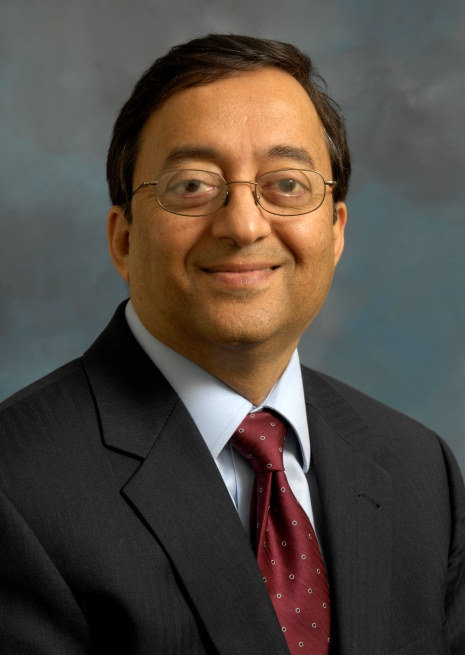School of Medicine Columbia
- SC.edu
- Study
- Colleges and Schools
- School of Medicine Columbia
- About
- Faculty and Staff
- Prakash Nagarkatti
Faculty and Staff
Prakash Nagarkatti
| Title: | Senior Research Advisor to the President Vice President for Research Emeritus; Carolina Distinguished Professor |
| Department: | Pathology, Microbiology & Immunology School of Medicine Columbia |
| Email: | pnagark@uscmed.sc.edu |
| Phone: | 803-545-5052 |
| Fax: | 803-545-5012 |
| Office: | 3555 Harden Street Extension, MedPark 15, Suite 314, Columbia, SC 29203 |
| LinkedIn: | My LinkedIn profile |
| Resources: | Director, NIH Center for Dietary Supplements and Inflammation Director, NIH Center for Complementary and Integrative Medicine Director, NSF Center for Materials Assembly and Design Excellence in South Carolina Google Scholar My PubMed Publications |

Research
Research Interests Immunotoxicity of TCDD and other endocrine disruptors
Supported by NIH grant R01 ES 09098
There is growing concern that environmental chemicals can alter the functions of the
immune system and make an individual more susceptible to development of cancer, infections,
autoimmunity and allergies. This has led to the emergence of a new field, immunotoxicology.
Our studies using Fas deficient (lpr/lpr) and FasL defective (gld/gld) mice for the
first time demonstrated that TCDD (dioxin), a highly toxic environmental pollutant
and carcinogen, triggers apoptosis (programmed cell death) in T cells, and causes
thymic atrophy as well as peripheral immunosuppression. We are now studying the mechanisms
involved in the TCDD-induced Fas and FasL upregulation and factors regulating TCDD-mediated
apoptotic pathways in cells of the immune system.
Cannabinoid-induced immunosuppression and use of cannabinoids in cancer therapy
Supported by NIH grants R01 DA016545 and R21 DA014885
Cannabinoids are compounds derived from Cannabis sativa plants, as well as produced
endogenously in the brain and by immune cells. Of the two cannabinoid receptors ,
CB1 receptors are expressed at high levels in central nervous system, where they mediate
psychotropic effects. In contrast, the CB2 receptors are solely expressed on immune
cells and do not contribute to the psychoactivity. Our studies have demonstrated that
cancers of immune origin also express CB1 and CB2 receptors and that ligation of CB2
receptors can induce apoptosis in a wide range of murine and human tumors of immune
origin. These studies raise the exciting possibility that molecular targeting of CB2
receptors on tumor cells may provide a novel approach to induce apoptosis and thereby
treat cancers of the immune system without inducing psychoactivity. We have also shown
that cannabinoids can suppress immune functions by inducing apoptosis and promote
metastasis of certain types of tumors. Thus, cannabinoids may serve as double-edged
swords and studies are in progress to delineate the mechanisms of differential activity
of cannabinoids against immune cells and cancer.
Role of CD44 in endothelial cell injury and antitumor immunity
Supported by NIH grants R01 AI053703 and R01 HL058641
Our lab is also been interested in developing novel approaches to treat cancer using
immune cells or their products, a procedure called “immunotherapy”. We are studying
the role of CD44 in IL-2 mediated rejection of melanomas. IL-2 is extensively used
in the treatment of renal cell carcinomas and melanomas. However, this treatment is
extremely toxic resulting in endothelial cell (EC) injury and vascular leak syndrome.
Using CD44 knockout mice, we have shown that CD44 plays a critical role in the EC
damage caused by cytotoxic lymphocytes. Currently, we are using CD44 isoform knockout
mice to identify the CD44 isoforms involved in EC injury and developing therapeutic
modalities to prevent vascular damage and increase the efficacy of IL-2 therapy against
cancer.
Center for CAM — Research on Autoimmune and Inflammatory Diseases
Supported by NIH Center grant 1P01 AT003961-01A1 — Center Director
Recently, we received a $6 million grant from NIH to study complementary and alternative
medicine (CAM) treatment for different inflammatory and autoimmune diseases. This
project will investigate the mechanisms through which various plant-derived compounds
can be used to treat inflammatory and autoimmune diseases. The project in my lab will
use Resveratrol (found in grape seed and skin) to treat experimental multiple sclerosis.
We are studying the mechanism of action of Resveratrol in the treatment of different
mouse models of multiple sclerosis with emphasis on immune regulation and disease
prevention. The research on other two projects deal with 1) Treatment of colitis using
American ginseng and 2) Treatment of autoimmune hepatitis using cannabidiol obtained
from hemp conducted by Drs. Lorne Hofseth and Mitzi Nagarkatti, respectively.